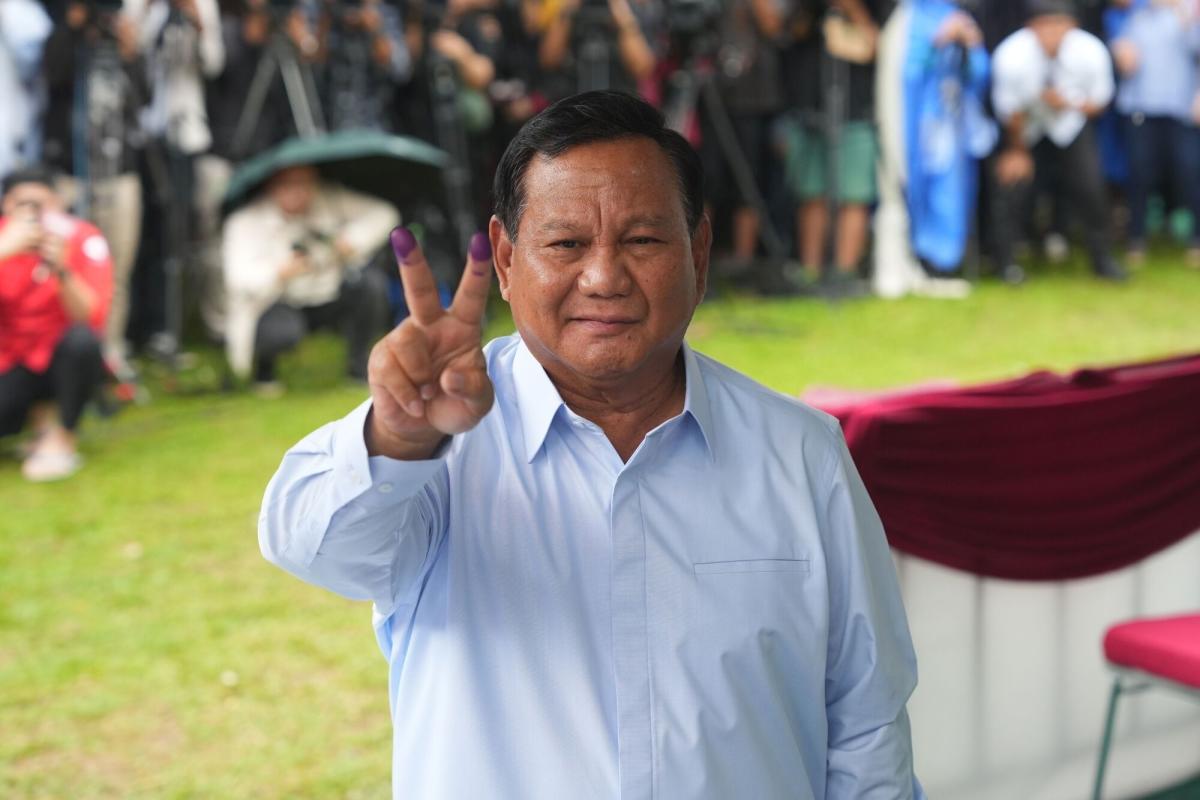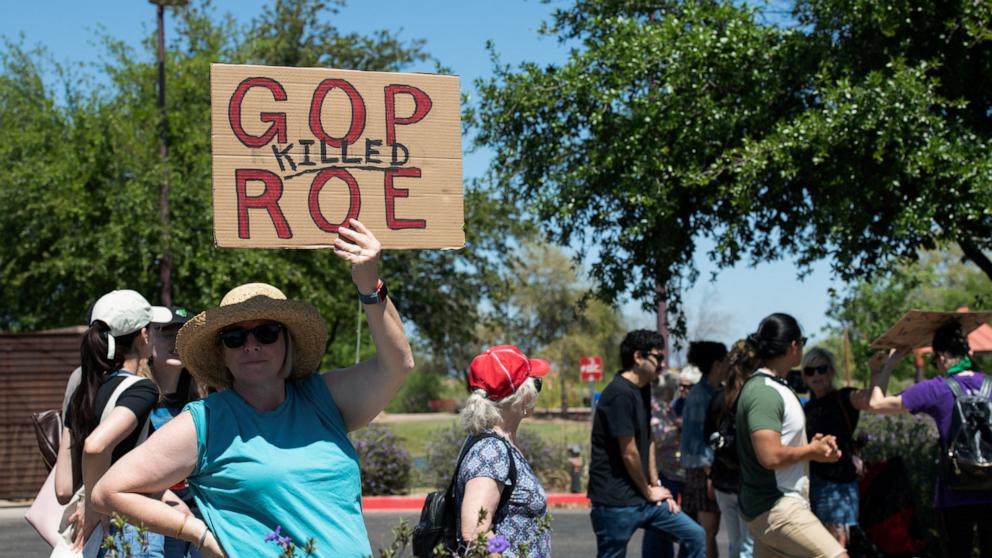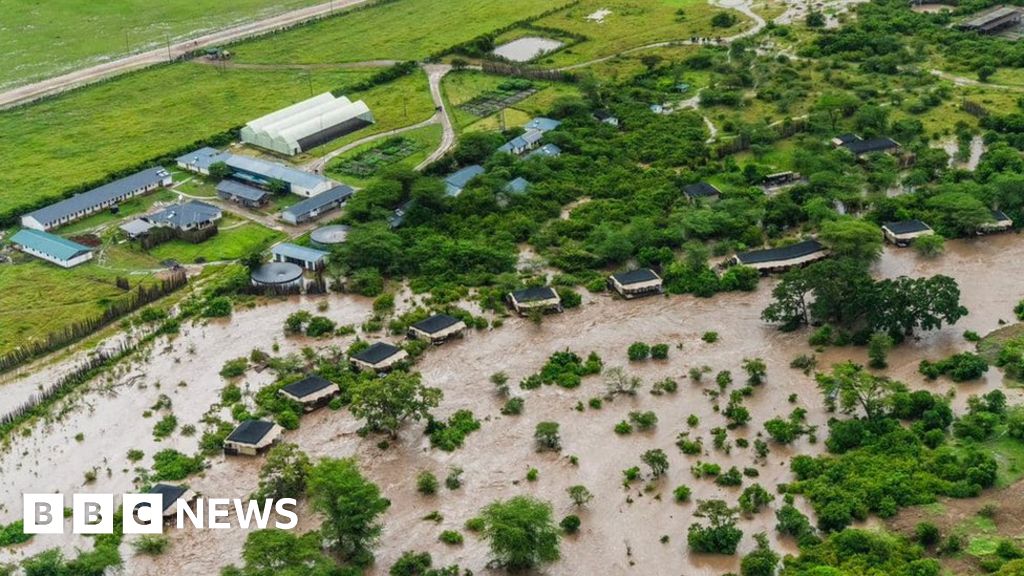(Bloomberg) — Indonesia’s Defense Minister Prabowo Subianto declared victory in Wednesday’s presidential vote, citing independent pollsters, putting him on course to lead Southeast Asia’s largest economy after two failed attempts.
Most Read from Bloomberg
The 72-year-old ex-general and his running mate Gibran Rakabuming Raka waved to thousands of supporters in a victory celebration as the pair secured nearly 60% support in quick counts done by private pollsters Litbang Kompas, Indikator Politik Indonesia, Lembaga Survei Indonesia and CSIS Indonesia-Cyrus Network. Gibran is the eldest of the three children of the incumbent Joko Widodo, popularly known as Jokowi.
The two other presidential contenders — former Jakarta Governor Anies Baswedan and former Central Java Governor Ganjar Pranowo — told their supporters separately to wait for the official results, with neither conceding defeat. Under the election rules, the winner must secure more than 50% of the total votes and at least 20% of votes in more than half of Indonesia’s provinces.
Prabowo called for unity and said “this victory must be a victory for all Indonesians.” His 30-minute speech was punctuated by thanking dozens of allies including those in the military and paying tribute to past leaders. Yet, it’s his ties with the incumbent Jokowi that roused the crowd to chant the president’s name. Prabowo had lost to him in the past two elections and his son Gibran is now his vice president.
A swift victory for Prabowo and Gibran removes the uncertainty from a prolonged election and may lift Indonesian stocks and the local currency in the near-term, analysts said. The offshore rupiah rose as much as 0.5% to 15,599 per dollar.
“The quick counts showing Prabowo with a comfortable lead should be positive for market sentiment in the near term, given the associated reduction in political uncertainty and policy direction,” said Krystal Tan, economist at Australia & New Zealand Banking Group Ltd. “Focus will now shift towards the composition of the ruling coalition and appointments to key posts, particularly the finance portfolio and the implications for fiscal policy,” Tan said. Local financial markets are shut on election day.
The counting done by private pollsters are based on a sample of actual votes from more than 800,000 polling stations across the country and provide an early indication of the official results, which may only come in days or weeks.
Prabowo has pitched himself as the candidate most likely to advance Jokowi’s business-friendly economic platform as he seeks to transform Indonesia into a high-income economy by 2045. Those priorities include downstreaming Indonesia’s vast natural resources, building more infrastructure and moving the nation’s capital to Borneo.
The former son-in-law of Indonesia’s late dictator Suharto was banned from entering the US for two decades over alleged human rights abuses, something that was lifted after Jokowi named him defense minister in 2019 after beating him in that year’s election. The outgoing president hasn’t publicly declared support for Prabowo.
The victory can, in part, be attributed to an extensive image makeover on social media that has seen the temperamental military man with history of fiery nationalist speeches depicted as an affable grandfatherly figure. Among his promises is a pledge to give free lunches to some 83 million students, something that would cost 300 trillion rupiah ($19 billion) a year — nearly the same size as the nation’s 2023 budget deficit.
The world’s biggest single-day polls took place over a six-hour period, also electing lawmakers to local and national legislatures. The new leadership to take over from Jokowi in October will help shape the policies that will chart investment and growth in the Southeast Asian nation.
While Prabowo promised to adopt Jokowi’s policies, if he wins, it will be his presidency and not a third term for the incumbent, said Douglas Ramage, managing director at BowerGroupAsia Indonesia. “We must keep in mind that there’s no precedent of a president affording their predecessor much influence,” Ramage said.
Indonesia’s next president inherits a $1-trillion economy that has fast risen in the global resource supply chain, thanks to Jokowi’s focus on overseas sale of refined rather than raw commodities. That move has boosted exports, narrowed the fiscal deficit and steadied the currency, making Indonesia an emerging-market favorite.
The new president will lead a country that must create jobs for a large youth population while managing supply chain disruptions and the green transition that curbs reliance on locally-abundant coal. He must also navigate regional security concerns amid the heightening rivalry between the US and China.
“We see a first-round win by Prabowo as positive though we remain on the cautious side,” said Biola Babawale, sovereign analyst at Macquarie Group Ltd. in London. “As we have seen a seeming drift toward dynastic politics under Jokowi and given Prabowo’s alleged past, we would want to keep an eye on developments related to governance and the rule of law,” she said.
–With assistance from Soraya Permatasari, Matthew Burgess, Philip J. Heijmans, Claire Jiao, Cecilia Yap, Eddie Spence, Grace Sihombing and Eko Listiyorini.
(Updates throughout)
Most Read from Bloomberg Businessweek
©2024 Bloomberg L.P.

Abhinav Thawait is a globe-trotting correspondent with a passion for international affairs. With a background in international relations, he offers a global perspective on the most pressing issues around the world. Abhinav’s curiosity takes his to the far corners of the earth, where he seeks to share untold stories and diverse viewpoints.








